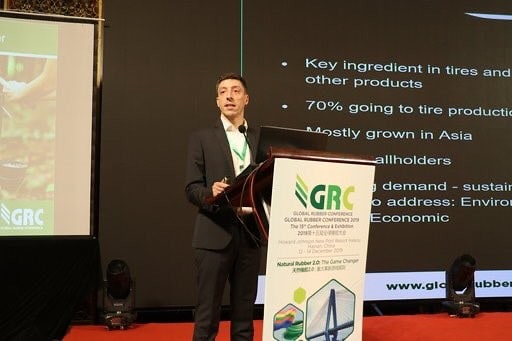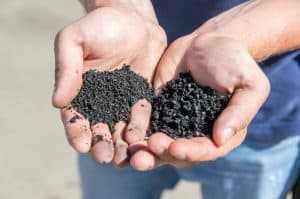What does it take to revive the Natural Rubber economy? Could the Natural Rubber 2.0 be the ultimate game changer for the new NR economy? These were some of the difficult questions discussed at the 15th Global Rubber Conference.
Hosted in Hainan, China from 12-14 December, with a theme on ‘Natural Rubber 2.0: The Game Changer’, the conference represented a very exciting event and opportunity for networking and knowledge sharing for Natural Rubber professionals in Asia, and in the rubber industry globally.
GPSNR Director Stefano Savi participated in the conference as a speaker and panel discussion member, to share updates with the industry participants about the progress of the Platform and its working groups. “Sustainability should not be seen as a threat by producers, but an opportunity to place natural Rubber as a leader in the global commodities landscape, best placed to deliver on the UN SDGs and the 2030 agenda.” said Stefano during his remarks, adding that “GPSNR is here to support smallholders in this journey, and ensure that the cost of this sustainable shift will not be borne by farmers, but supported by the industry through the Global Platform.”
Amidst the current backdrop of the fourth industrial revolution, the conference was a good opportunity to discuss the convergence of artificial intelligence and data technology as new solutions to address innovation gaps and current low demand for NR across the globe. It is obvious that from drones to satellite images and sensor technology, the natural rubber industry is poised for a radical change. So, what role will sustainability play in this desired and required industry shift? Will the natural rubber industry take advantage of this opportunity to improve its practices, maximise its positive impact, and reposition itself as a leader in innova






